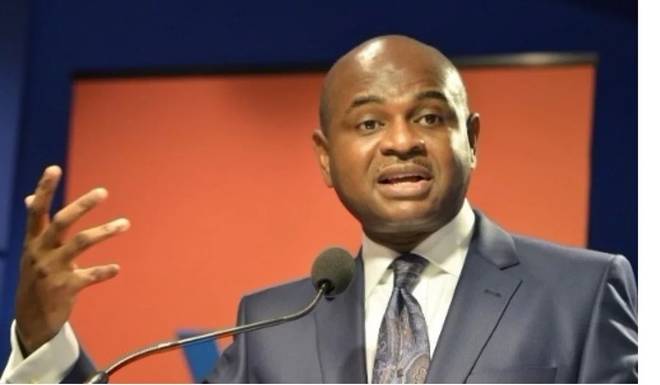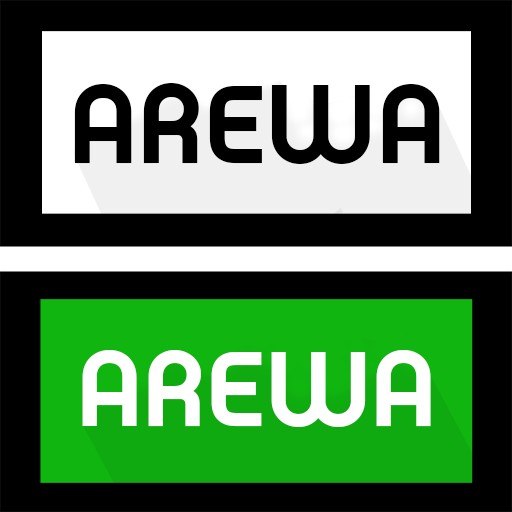
Moghalu, therefore, called for better, more sustainable pay for workers.
He said this in a statement by his campaign spokesman, Jide Akintunde, noting that those who earned the current minimum wage, lived on $1.67 per day – a situation he described as tragic.
His comments come amidst the ongoing disagreements between the government and labour leaders over the amount to be fixed as the new minimum wage.
While the Federal Government says it is capable of paying N24,000, state governments say they are only capable of paying N22,500, as against the N30,000 requested by the workers.
Moghalu, however, says if he is elected President in 2019, he has plans to quickly facilitate agreements on minimum wage.
Read his full statement below:
Professor Kingsley Moghalu, the presidential candidate of the Young Progressives Party (YPP), has said that Nigerian workers need a higher minimum wage that is sustainable.
He, therefore, plans to quickly facilitate agreement on a new minimum wage, if he is elected President in 2019.
“The current minimum wage of N18,000.00 per month is a poverty wage,” said Moghalu.
“At the prevailing exchange rate in the parallel market, which is the most accessible forex market for most Nigerians, our fellow citizens who receive the current minimum wage are living on $1.67 per day.
“This is tragic, and it indicates one of the things that government must do to reduce extreme poverty in the country. The global benchmark for extreme poverty is living on $1.90, or less, per day.”
Moghalu said he has been monitoring the protracted negotiations for a new minimum wage between President Muhammadu Buhari administration and the labour leaders.
He said a token increase will not do, and neither would a decision that is inspired by populist political promises that are not implementable or sustainable.
“I will bring insight and expertise in economic management to lead a quick review and decision on the minimum wage,” said Moghalu, a former deputy governor at the Central Bank of Nigeria (2009 – 2014), who later became a Professor of the Practice in International Business and Public Policy at the Fletcher School of Law and Diplomacy, Tufts University in Massachusetts, USA, from 2015 to 2017.
The National Minimum Wage (Amendment) Act 2011 raised the minimum wage from N7,500 to N18,000. In recent years, however, many states of the federation have been defaulting in meeting their salary obligations to their workers.
Salary arrears run into five months and above in many states.
At the federal level, the non-debt recurrent expenditure is N3.5 trillion in the 2018 budget and debt service obligation is N2.01 trillion.
The addition of both figures, N5.51 trillion, amounts to 78% of the projected total government revenue for the year.
This raises the question as to how to fund a larger wage bill without recourse to borrowing.
Moghalu believes that Nigeria needs to borrow less. He believes that the analysis of Nigeria’s debt sustainability can no longer be anchored on the debt-to-GDP ratio.
At 21.3% in 2017, the debt-to-GDP ratio gives false assurances that Nigeria can continue to borrow without negative consequences, as the Buhari administration has been doing.
Moghalu believes the more realistic metric would be the percentage of debt service to total revenue.
Based on actual revenue in the preceding fiscal year, and not projected revenue figure, 63% of government revenue was used for repaying debt in 2017, according to the International Monetary Fund (IMF).
This ratio may likely grow in the coming years, if there is a downward trend in the price of oil in the international market, or if Nigeria’s production volume declines for any reason.
Moghalu believes that a new minimum wage should be closer to double the current N18,000.00.
The rationale for this is the need to start pushing back on the growing number
of extremely poor Nigerians. 87 million Nigerians, which account for about 45% of the population, now live in extreme poverty.
Nigeria also has a high dependency ratio; whereby, social support is provided by family and friends to more hapless relations.
To fund a higher minimum wage, Moghalu plans to eliminate the petroleum subsidy; increase tax revenue by ensuring more individual and corporate citizens (including informal sector operators) pay their taxes to the government; and remove labour redundancy in the public service.
Elimination of the subsidy on petrol will save the government up to N500 billion yearly.
This assumption is based on the average value of the subsidies paid to the product marketers in the 10-year period between 2006 and 2015.
Ending the long regime of petrol subsidy will bring closure to a wasteful government expenditure that has benefitted the rich far more than the poor, encouraged corruption, stymied local refining capacity and inhibited job creation in the downstream sector of the oil industry.
When Nigerians trusted the APC government of President Muhammadu Buhari to address the petrol subsidy conundrum in 2015, he was short on the political will to do so.
Instead, he merely increased the price of petrol by a whopping 49%, from N97 per litre to N145 per litre. Nothing more. Therefore, Nigerians are paying higher prices for petrol now, while all the aforementioned problems with petrol subsidy have remained.
To increase government’s tax revenue, Moghalu plans, as President, to establish a Social Contract with the Nigerian people.
He plans to make the public procurement process more transparent and efficient for radically improved public service delivery. He also plans to introduce forensic audit to the budgetary process to address the problem of budget padding.
His plan to maintain a database of procurement items will check inflation of
government contracts and ensure more value for every naira spent by the government.
It is envisaged that these will improve voluntary compliance to payment of taxes.
Through the automation of government’s revenue-generating institutions, Moghalu targets 100% remittance of government revenues.
To cushion the effect of taxes on businesses, Moghalu plans to squarely address the perennial problem of power supply to businesses and industries. To achieve this, a number of reform measures in the power industry will be introduced, while some existing ones will receive a new fillip for effective implementation.
Moghalu plans to unlock private sector investment in the power sector by decentralising the national grid and phasing in a regime of commercial tariff.
Access to public power supply from the existing hydro and gas-fired power plants will be prioritised for the industrial zone in Lagos, Ogun, Kano, Kaduna, Aba, Onitsha and Nnewi, and new ones would be set up in close proximity to the major power plants. Policy support for captive power generation will also receive a boost.
These measures will drastically reduce the cost of self-generation of power mainly by using the generators. Because of the heavy reliance on generators, energy cost accounts for up to 60% of the operating expenditures of many businesses in the country. With the provision of public power supply on 24/7 basis, the prices of products and services will crash, business volumes will grow, and profitability will improve.
With the elimination of the negative incentives for tax avoidance, the government will become tougher on tax defaulters. Overall, tax revenue for the government is expected to increase by 20%, year-on-year, from the second year of the administration of Moghalu, if elected in 2019.
Moghalu plans to deliver improved performance in the effort to remove ghost workers from the government payroll. His administration (in prospect) will complete biometric registration of all government workers and link their staff numbers to their individual Bank Verification Number (BVN).
It should be noted that Moghalu supervised the introduction of the BVN in
the payment system when he was Deputy Governor, Operations, at the Central Bank of Nigeria.
By bringing headcount of government workers to reality, his administration will
eliminate those who, literally and figuratively, have no place in the government offices, raise productivity and save up to N50 billion from the wage bill over three years.
Certainly, there are risks to a sharp increase in the minimum wage. The risks include inflationary pressure; tighter labour market conditions, which may include layoffs of a large number of workers across the public and private sectors; slower job creation; and labour market upheaval from general strikes.
This is the reason an increase in the minimum wage must be accompanied by other fiscal reforms, which are adaptable by the state governments.
Nevertheless, Moghalu, who is a professional risk manager, maintains that “a realistic upward adjustment of the minimum wage can motivate higher labour productivity, especially in a frontier market like Nigeria.
It is impossible to lift Nigerians out of poverty by paying ‘poverty wages’ to government workers.”
He said one of his three major policy goals is to fight and win a decisive war against poverty and unemployment in Nigeria.
But there is no indication yet that the current review of the minimum wage has benefitted from the necessary insights and expertise. Like in several areas that the Buhari administration has failed to perform, the much-anticipated national minimum wage may end up as a vacuous political promise, especially because the negotiations have lingered into the 2019 campaign season.
“Based on our experience with the dismal performance of President Buhari’s populist campaign promises, Nigerians should be suspicious of utopian promises by any of the presidential candidates regarding unsustainable increases in the minimum wage ahead of the 2019 elections,” said Moghalu.
“What we need now is someone who is competent in economic management as President in 2019,” he concluded.
